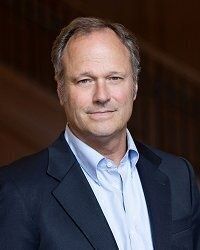
Andrew Hoffman: The Next Phase of Business Sustainability
Abstract: Business sustainability has come a long way. From the dawn of the modern environmental movement and the establishment of environmental regulations in the 1970s, it has become a strategic concern driven by market forces today. But, the era of corporations integrating sustainable practices is being surpassed by a new age of corporations actively transforming the market to make it more sustainable. The first phase of business sustainability, what we call “enterprise integration,” is founded on a model of business responding to market shifts to increase competitive positioning by integrating sustainability into preexisting business considerations. By contrast, the next phase of business sustainability, what we call “market transformation,” is founded on a model of business transforming the market. Instead of waiting for a market shift to create incentives for sustainable practices, companies are creating those shifts to enable new forms of business sustainability.
Bio: Andrew (Andy) Hoffman is the Holcim (US) Professor of Sustainable Enterprise at the University of Michigan; a position that holds joint appointments in the Stephen M. Ross School of Business and the School for Environment and Sustainability. For the 2023-2024 academic year, he is a visiting climate fellow at the Institute for the Study of Business in Global Society at the Harvard Business School. His research uses organizational behavior models and theories to understand the cultural and institutional aspects of environmental issues for organizations. He has published over 100 articles/book chapters, as well as 18 books, which have been translated into five languages.
This event is presented as part of the 2024 Perspectives on the Climate Change Challenge Seminar Series:
Most Mondays, Spring Semester 2024, 2:55-4:10pmVia ZoomThis university-wide seminar series is open to the public (via Zoom), and provides important views on the critical issue of climate change, drawing from many perspectives and disciplines. Experts from Cornell University and beyond present an overview of the science of climate change and climate change models, the implications for agriculture, ecosystems, and food systems, and provide important economic, ethical, and policy insights on the issue. The seminar is being organized and sponsored by the Department of Biological and Environmental Engineering and Cornell Atkinson Center for Sustainability.